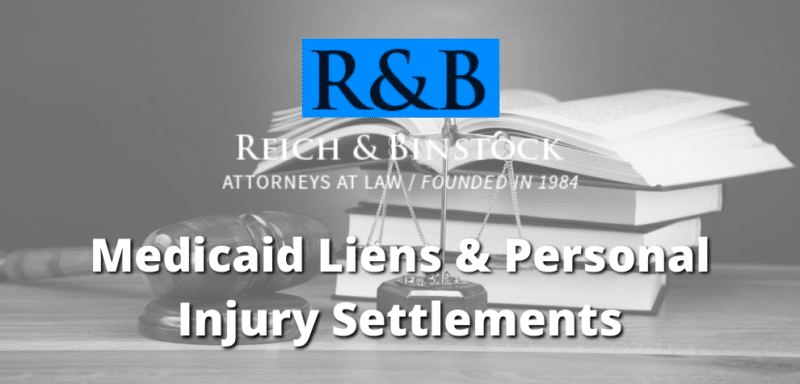CONDO LAWYER FOR INSURANCE CLAIMS
Houston Lawyers for Condo Owners
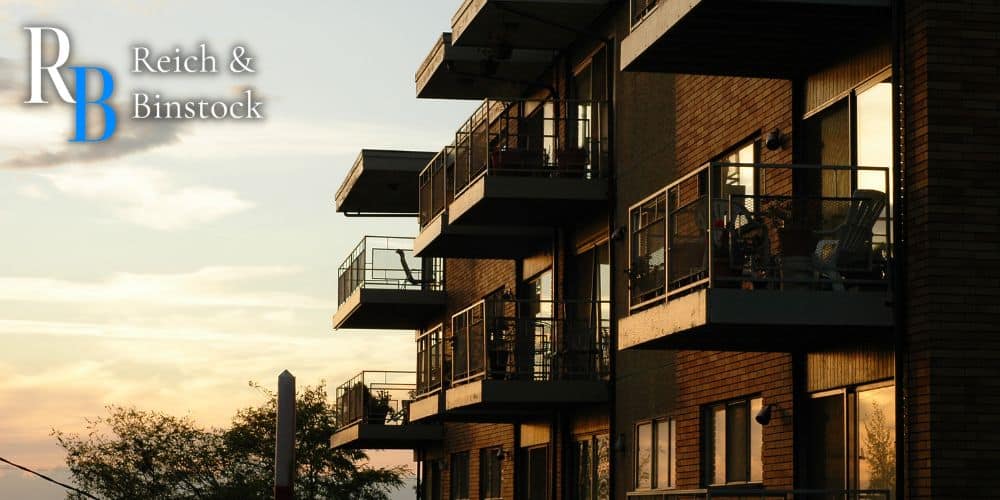
Picture this: you purchased a beautiful condominium, and you’re ecstatic about being a unit owner. However, shortly after you’re fully moved in, you discover issues with your unit. These issues could be construction defects, zoning issues, water leaks, or other problems. Regardless, you’ll likely need to file a property insurance claim to rectify the problems. Unfortunately, these claims tend to be complicated and difficult to resolve. To avoid an unfair and frustrating denial of your claim, we recommend working with a condo lawyer throughout your case.
At Reich & Binstock, our property damage attorneys have extensive experience handling the unique needs of unit owners in their insurance claims. We will outline exactly what to know about condominium insurance claims, as well as what you can do as a unit owner to decrease your chances of claim denial. To schedule your free legal consultation with us, please call 713-622-7271 today.
What Is Condominium Insurance?
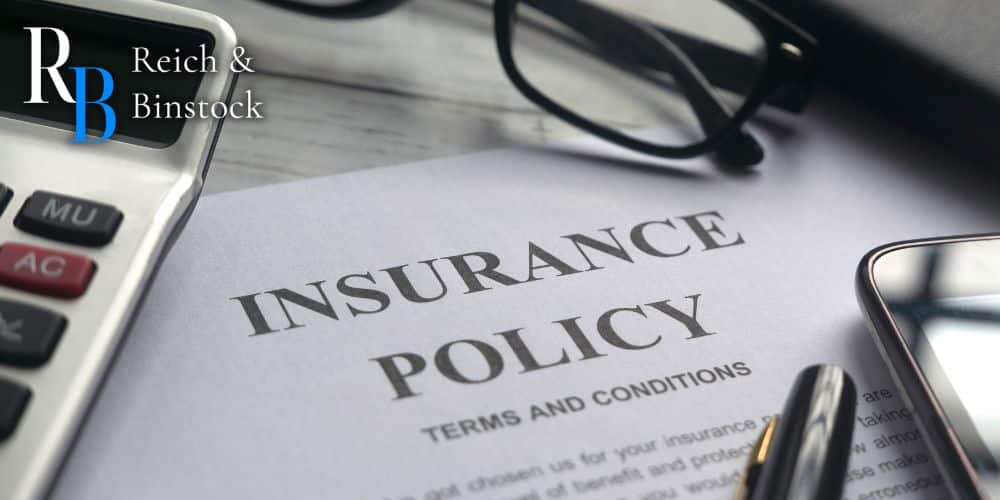
What many people don’t understand is that buying a condo isn’t exactly the same as buying a home. The same can be said for condominium insurance versus homeowners’ insurance. When you file a claim, it’s important that you understand the relevant condominium law in your state. Even local condo law can affect how you file your claim. For this reason, we recommend working closely with condominium law attorneys on your case.
Condo insurance must be purchased by condominium unit owners. In general, it pays for unit damages related to weather events, theft, vandalism, and even personal liability. Below, we outline the types of coverage that your condo insurance should provide.
- Personal liability coverage: This protects you in case visitors sustain injuries while at your condo. It will help you pay for legal services related to the incident.
- Building protection: This provides coverage for the actual building portion of your unit, including any built-in fixtures.
- Guest medical coverage: This is similar to personal liability coverage. However, it provides specific coverage for the medical expenses of the guest injured at your condo.
- Personal property coverage: This provides coverage for items and furniture within the units. Examples include furniture, clothing, appliances, and electronic devices. Most condo owners must choose between two types of personal property coverage: actual cash value and replacement cost coverage.
What to Know About Condo Insurance Claims
It’s important to note that, similarly to homeowners’ insurance, condo insurance has coverage limits. You must also pay your deductible before your insurance company begins to cover your losses. Additionally, many condo unit owners must pay into condominium associations or homeowners associations (HOA).
A homeowners association outlines the terms and conditions that condo owners must abide by in order to live in the condominium community. When you file an insurance claim, the condominium association will determine whether or not the damage extends into common areas or if it is confined to your individual unit.
An investigation by the homeowners association generally determines whether their master insurance covers the damage or if you will file your claim under your own policy. Dealing with condo associations can complicate condo insurance claims. Work with our experienced condominium lawyers to better understand your condo bylaws and submit a valid claim.
What Is Considered a Common Area?
In a condo complex, you must share walls and common areas with other unit owners and neighbors. HOA members are expected to do their part to maintain common areas in the community. Below, we list some common examples of common areas in condo complexes.
- Shared interior walls
- HVAC units
- Stairwells and elevators
- Parking lots and parking garages
- Hallways
- Lobbies
- Roofing and exterior walls
- Electrical outlets and units
- Balconies, patios, and decks
Your condominium association will outline what counts as a common area. Local real estate law and condo law may also outline this information.
Master Insurance Policies and Individual Insurance Policies
Generally, there are two types of insurance policies in place to ensure that the entirety of a condo complex is covered by insurance. The condo association will have a master insurance policy that covers the entire complex. Additionally, each unit owner will have their own individual insurance policy that protects their personal belongings and anything else that is not included in the master policy.
Generally, master insurance policies are paid for by condo association fees. Your individual policy should cover everything that the master policy does not. However, it may be necessary to purchase extra coverage to ensure that you don’t pay out of pocket for expensive repairs.
Common Condominium Insurance Claims
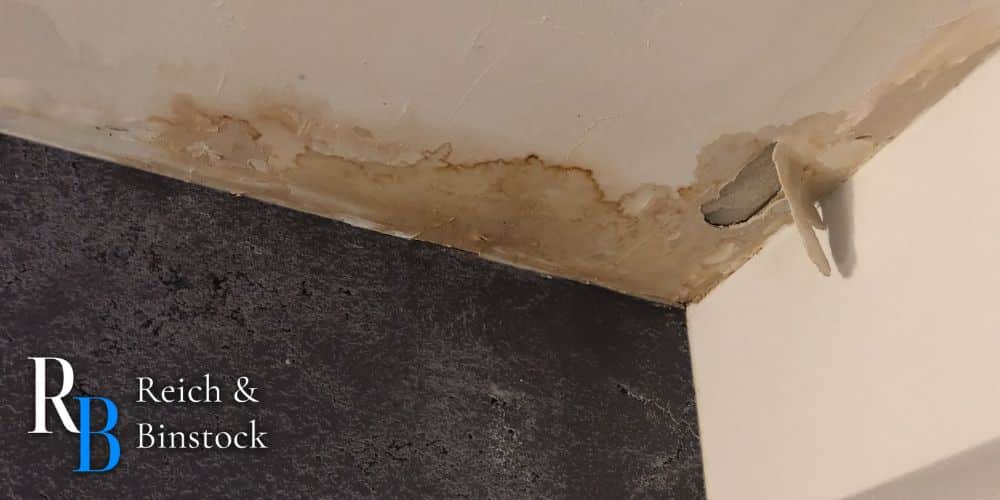
As we stated previously, these claims tend to be more complicated than the average homeowners’ insurance claim. Especially in cases where extensive repairs are necessary, you might need to file a claim under both your own policy and the master policy of the HOA.
Although it seems like the HOA should be eager to work with you on your claim, this is not always the case. Sometimes, it is necessary to hire a law firm to ensure that any disputes are handled properly.
One of the most common claims that condo unit owners file is water damage claims. Unfortunately, many condo insurance policies do not cover water damage. So, if a water leak causes damage in your unit, who pays for that damage?
Condo Water Damage
In most cases, the responsibility lies with the unit owner to file under their own insurance policy for water damage claims. However, if accidental water damage occurs to your unit from plumbing, heating and air conditioning units, or appliances, this will likely be covered by your policy. Basically, the source of the water damage ultimately determines whether or not your policy will cover repair costs.
Why Was My Condo Insurance Claim Denied?
Insurance companies tend to care more about their bottom line than doing what’s right for their policyholders. While many insurance companies act in good faith and fairly compensate policyholders, others wrongfully deny claims and engage in bad faith insurance tactics. Below, we list some of the reasons why your claim might have been denied.
- Actual cause of the damage: The insurance company might dispute the true cause of the damage.
- Devaluation of property: The company might claim that your unit’s value has significantly decreased, resulting in a very low offer or a complete denial of your claim.
- It is the HOA’s responsibility: Your insurance company might argue that your claim is actually the responsibility of the HOA’s insurance policy.
- You failed to cooperate: They may claim that you failed to cooperate with their investigation of the incident or that you failed to provide certain documents, such as the condominium master deeds.
How to Avoid a Condo Insurance Claim Denial
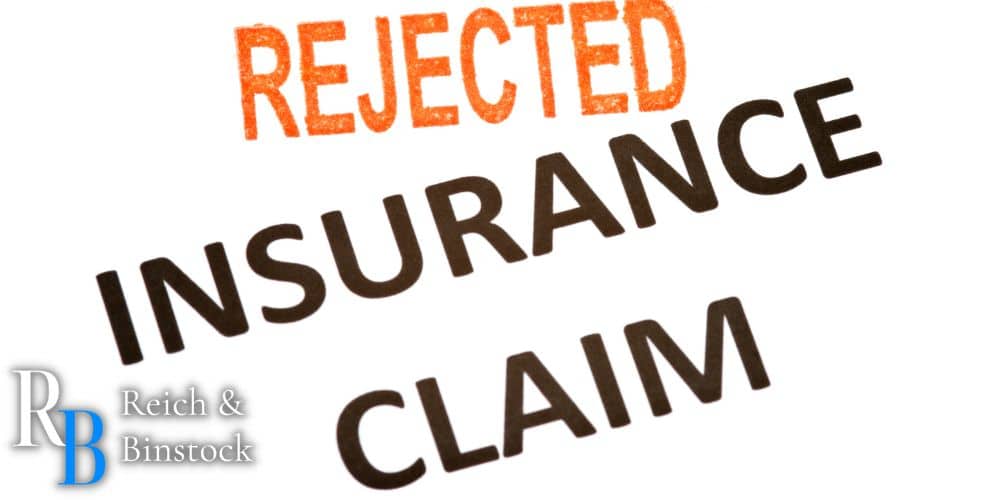
There are several ways you can prepare to file a claim ahead of time. Early preparation with the help of skilled attorneys is one of the most effective ways to avoid claim disputes or denials. We recommend taking the following steps before you even file your claim.
- Take detailed pictures and videos of the damage in your unit
- Include detailed notes of when the damage occurred
- Make a list of all your personal property, including which pieces were damaged
- If possible, provide before and after pictures of the damage in your unit
- Gather witness statements about the incident
Without sufficient evidence of the damage to your condo, an insurance company is likely to deny your claim. Work closely with your attorneys to ensure that you provide enough evidence to avoid denial of coverage.
How Can a Lawyer Help With My Condominium Insurance Claim?
Working with a condo lawyer can help you in a number of ways. Firstly, we have an in-depth understanding of real estate law. This knowledge works to our client’s advantage, as it makes negotiating with insurance companies much easier. From the very beginning of your case, we will advocate on your behalf and ensure that any disputes are resolved quickly. Not only will we verify that your policy covers the damage to your property, but we will also conduct a thorough investigation of your claim and fight for a fair settlement on your behalf.
File a Condominium Property Insurance Claim Today
At Reich & Binstock, we understand how frustrating an insurance claim denial can be. You deserve full and fair compensation for the damage to your property. If you’re unsure of where to turn, we encourage you to schedule a free case evaluation with us. Our property damage and insurance lawyers are highly skilled when it comes to evaluating claims. To schedule your consultation, please call 713-622-7271 today.
There is never a fee unless we recover on your behalf.
Additionally, clients are not obligated to pay expenses if a recovery is not made.






